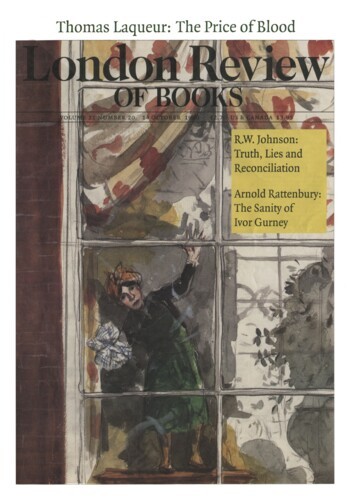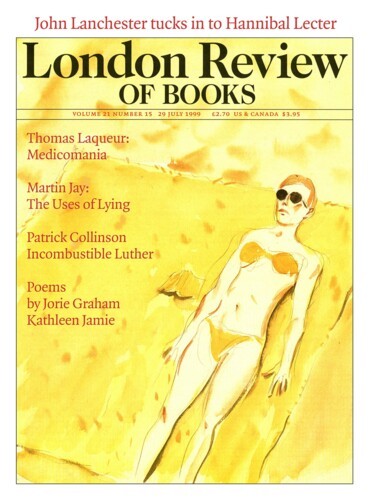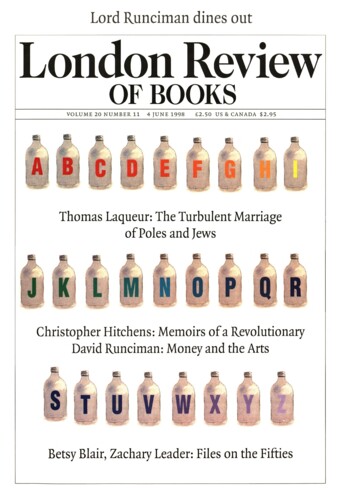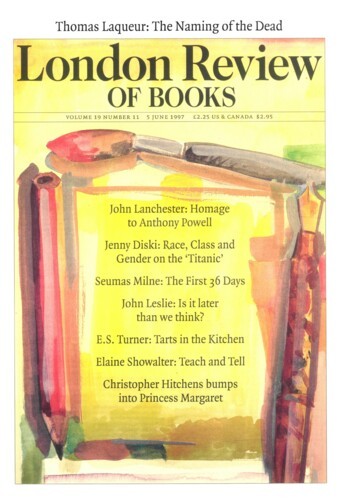Pint for Pint: The Price of Blood
Thomas Laqueur, 14 October 1999
Aids – or, more specifically, the lawsuits, criminal prosecutions and political recriminations that followed the transfusion of whole blood or blood products wittingly or unwittingly tainted with HIV – has renewed our interest in the sanguinary, and Douglas Starr has now set this interest in context. He describes his book as ‘the story of blood – the chronicle of a resource, the researchers who have studied it, the businessmen who have traded it, the doctors who have prescribed it, and the lay people whose lives it has so dramatically affected’. The ‘scandals that killed thousands of haemophiliacs and recipients of transfusions’ form the story’s dénouement. The moral, according to Starr, is that the safe use of this ‘precious, mysterious and hazardous material’ depends on a successful resolution of two sets of questions.’‘




